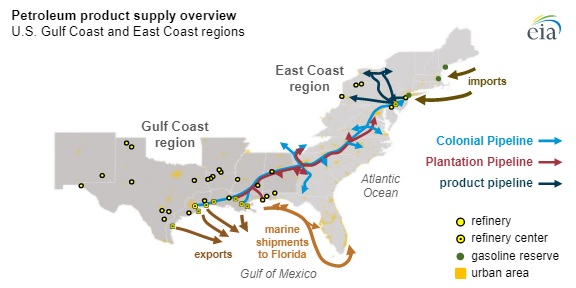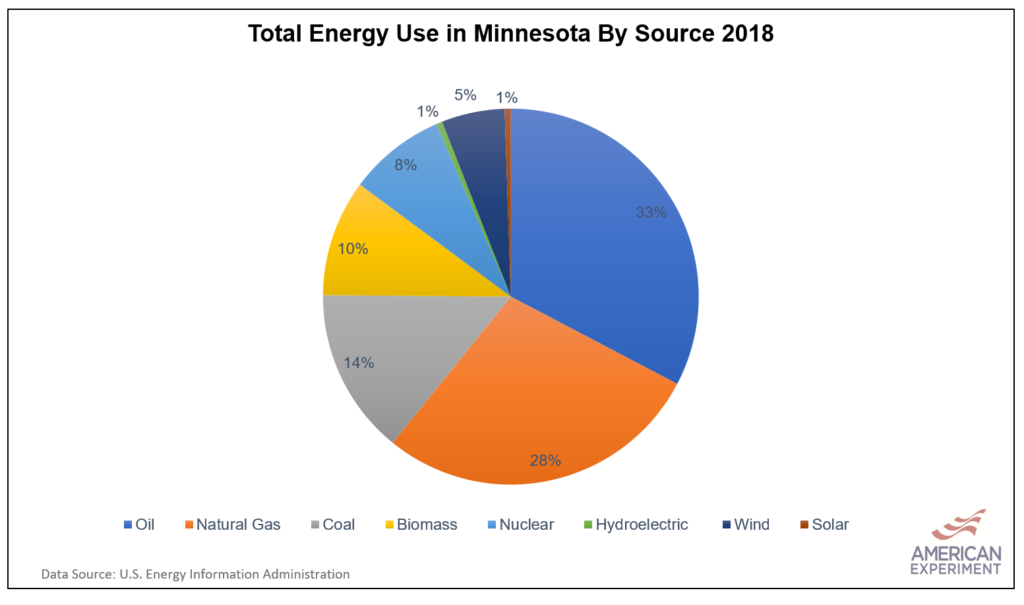Colonial Pipeline debacle shows we still need pipelines and the fossil fuels they carry
The closure of the Colonial Pipeline, a major pipeline that delivers 45 percent of the fuel consumed on the East Coast, due to a cyberattack has brought a new focus on the all-important role that pipelines, and the fossil fuels they transport, play in our lives.
According to the U.S. Energy Information Administration, the Colonial Pipeline stretches 5,500 miles from Houston Texas to New Jersey and carries 2.5 million barrels of fuel per day. It carries refined petroleum products such as gasoline, diesel, heating oil, and jet fuel to the Northeast and several states in the Southeast.

Gasoline prices are skyrocketing around the country in response to the closure of the pipeline. The Wall Street Journal, reports:
Gasoline prices have been surging, pushing up the national average price of a gallon of regular, unleaded gas to $2.96 a gallon, according to the AAA. That national average could soon pierce $2.99 and hit a 6 ½ year high. Gasoline prices could rise 3 cents to 7 cents a gallon this week in affected areas such as Mississippi, Tennessee, and East Coast states from Georgia to Delaware, the automobile association estimated.
While increasing prices are never welcomed by consumers, they are more welcome than the shortages of supply that have appeared in cities throughout the southeast.
As of Wednesday morning, 72 percent of gas stations in metro Raleigh, North Carolina, do not have fuel, according to a Gas Buddy analyst. According to Gas Buddy, nearly one in four gas stations in North Carolina were out of fuel as of 7 a.m. Wednesday morning.
The shortage of supply has led to long lines at gas stations as people panic to fill up and top off their vehicles.
Oil plays an indispensable role in our lives. In Minnesota, oil accounted for 33 percent of all the energy we used in 2018, and natural gas accounted for 28 percent. This means pipelines are largely responsible for transporting 61 percent of the energy that Minnesotans use.

The Colonial Pipeline closure should serve as a wakeup call to pipeline protestors who pretend we don’t need the energy transported by these pieces of critical infrastructure. We are as reliant upon oil and natural gas as we are water, and that reality isn’t going to change anytime soon.
Instead of protesting pipelines, we should appreciate the vital role they play in our lives and take steps to secure other pipelines from cyberattacks to prevent a repeat of the Colonial Pipeline hack.